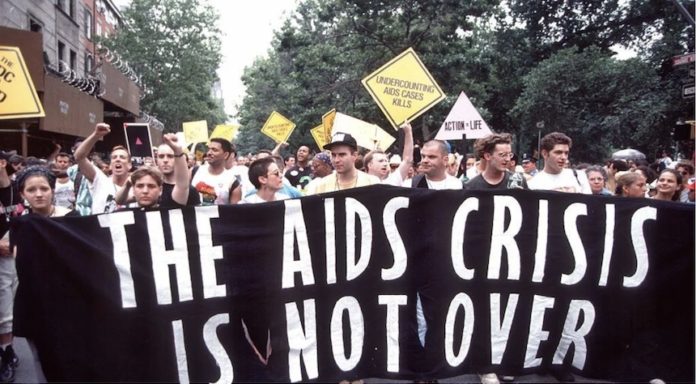The Food and Drug Administration imposed a lifetime ban on homosexuals who were involved in gay sex after 1977, during the height of the AIDS epidemic. The Wall Street Journal reports that the FDA could soon allow some homosexuals to share vital fluids.
According to sources, FDA plans will allow homosexuals living in monogamous relationships to donate blood. They won’t have to stop having sex. These new guidelines and rules, which are still in development, will be published sometime in the next few months.
According to reports, the FDA will soon turn the faucet on a new source of blood after a study of 1,600 homosexuals funded by the agency was completed to “determine whether a blood donor history questionnaire based upon individual risk would be an acceptable option to a time-based delay in reducing HIV risk among gay and bisexual men who donate blood.”
The FDA and the three largest non-profit blood centers in America have not resolved the issue, but the Vitalant Research Institute director Brian Custer said that the study provided “highly relevant information” to help envision how an individual risk-based approach might look.
All donors, regardless of their likelihood of carrying HIV, must complete an identical individualized risk assessment.
An FDA official stated that the questionnaire will be used to ask potential blood donors whether they have had new partners in the last three months. Only those who respond negatively can donate blood.
If they indicate that they were promiscuous, they will be asked if they have had anal sex.
The Centers for Disease Control and Prevention states that anal sex is the riskiest type of sex for HIV transmission or getting. The recipient, not the participants in this act of sodomy, is more at risk than the others.
The CDC noted that normal sex is less likely to get HIV than receptive anal sex.
Donors of blood will only be accepted if they don’t believe in anal sex. People who answered yes will have to wait for three months before they can donate blood.
The three-month window is significant because an HIV infection would likely be detected in that period.
The Wall Street Journal stated that FDA’s new changes are not without risk.
Although HIV testing has improved over time, allowing blood banks to discard bad blood from long-infected people, there is no test that can detect HIV right away.
According to Dr. Bruce Walker, an infectious disease specialist, the window for exposure is likely not longer than 10 days after the time of the initial exposure.
The CDC stated that it can take between 23 and 90 days for antibody tests to detect HIV in a person’s bloodstream or oral fluid.
Antigen/body testing, which tests for HIV antibodies and antigens can take between 18 and 90 days after exposure.
The nucleic acid tests (NATs), which test for HIV in blood, can “usually detect HIV between 10 and 33 days after exposure.” Even though they are highly sensitive, some cases have been reported where NATs failed to detect infected blood.
Human Rights Campaign and other gay activist groups have long argued that the policy of preventing homosexuals from donating blood was discriminatory even though it prevented good blood from being received by healthy homosexuals.
Sarah Warbelow is the legal director of the Human Rights Campaign. She stated, “It’s a completely obsolete policy that doesn’t reflect our current capability to test blood for HIV and the medical science around HIV.”
The original blood ban was instituted to protect lives and not discriminate.
Marguerita Lightfoot was the director of the Center for AIDS Prevention Studies. She told Men’s Health in 1980 that “we were still trying to figure the transmission of HIV, and all that we knew was that this particular population was disproportionately affected.”
This is still the case today.
The Kaiser Family Foundation reports that 13,000 Americans have died from AIDS each year in the United States, while more than 700,000 have been killed nationwide since the start of the HIV epidemic. AIDS is the final stage of HIV infection.
As with the recent cases of monkeypox, homosexuals were particularly affected by the spread disease.
According to the CDC in 2019, almost 70% of new HIV diagnoses in America were made by homosexuals.
Despite the higher HIV infection rate in this demographic, FDA lifted its lifetime ban against homosexuals donating blood in 2015. “Changing its recommendation that men who have had sex (MSM), be indefinitely deferred… to twelve months since the last time they had sexual contact with another male.”
This change, despite its apparent importance, was met with derision by gay activists.
GLAAD, an LGBT activist group, posted a video of Alan Cumming as a script reader to YouTube. He mocked the notion that gay men could not have sex for a whole year.
Kelsey Louie was the ex-CEO of the Gay Men’s Health Crisis. He praised the 2015 decision and said, “The United States government must stop reacting to HIV as it was in the early 1980s.” … The FDA needs to adopt a policy that is based on science and not on blanket bans for certain groups of people.
The 12-month wait time for non-monogamous gay donors will be reduced to three months in the near future.




